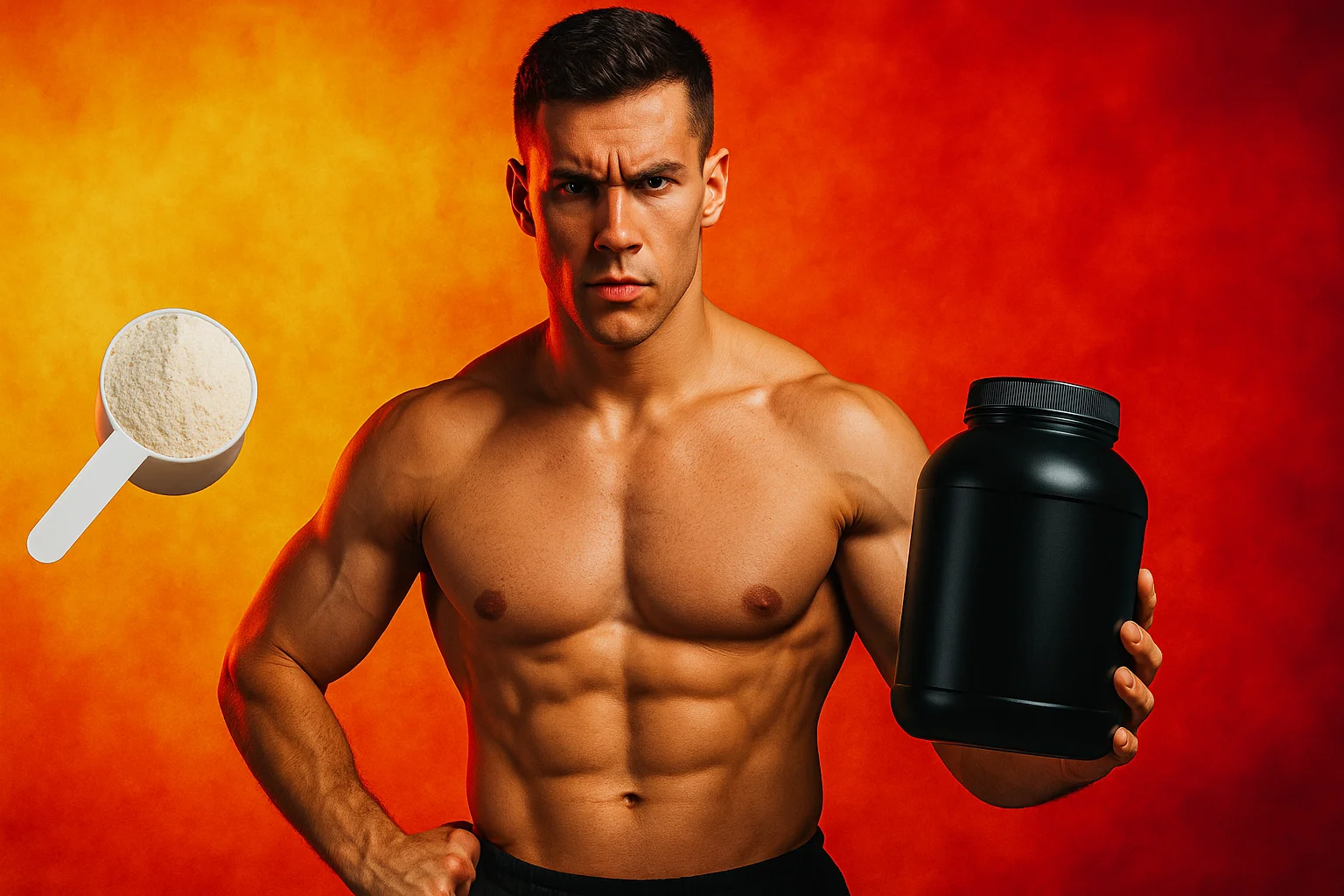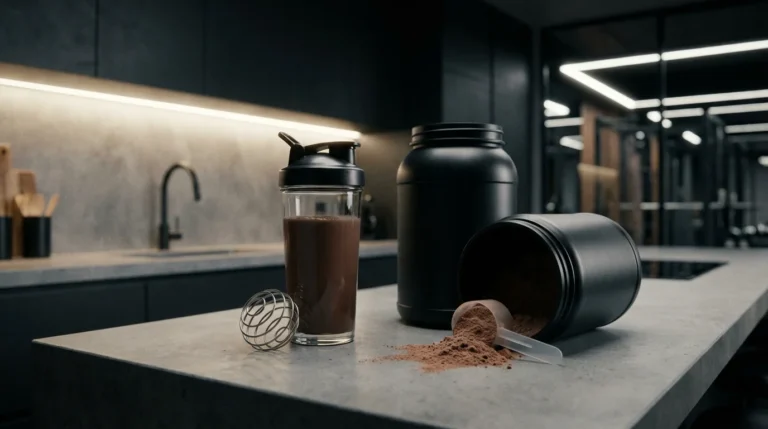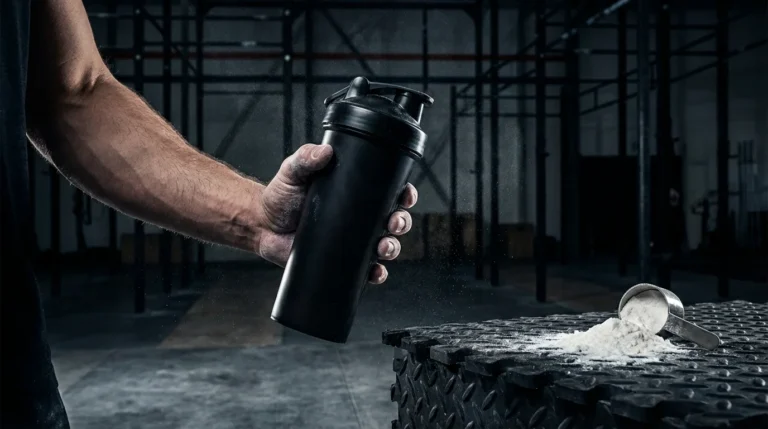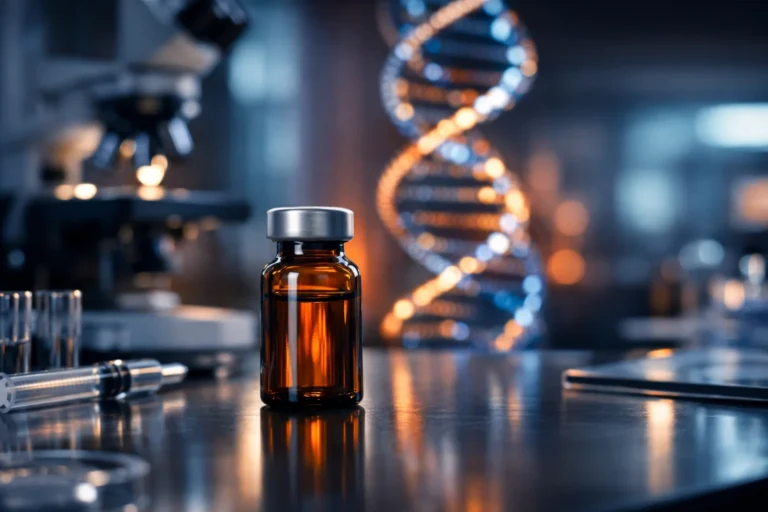It is not clear if taking collagen directly changes your testosterone. Some early research shows collagen might help the cells that make testosterone, but more studies are needed.
In a Nutshell: Collagen and Testosterone
- You will learn what collagen and testosterone are.
- You will understand the current research on how collagen might relate to testosterone.
- You will find out if collagen supplements are known to boost testosterone.
- You will discover other ways collagen can support men’s health.
Estimated reading time: 4 minutes
Many people wonder, “Does collagen affect testosterone?” It is a common question as interest in both grows. Understanding their connection can help you make good choices for your health.
What Is Collagen?
Collagen is a protein. Your body has more collagen than any other protein. It is like the glue that holds things together. Collagen is very important for your skin, bones, and connective tissues. It helps keep them strong and flexible. Think of it as the frame for your body’s structures. Collagen also plays a part in how your muscles work and heal.
What Is Testosterone?
Testosterone is a very important hormone, especially for men. It helps build muscle and keeps bones strong. It also affects sex drive. Testosterone plays a role in your mood and overall energy too. If testosterone levels are too low, it can cause problems. These can include feeling tired or having a lower interest in sex.
How Might Collagen Relate to Testosterone?

So, does collagen affect testosterone production directly? The answer is not simple yet. Some studies suggest collagen could play a supportive role. For example, research at USC showed that human collagen can help grow Leydig cells in a lab. Leydig cells are the cells in the testes that make testosterone.
This finding means collagen might provide the right environment for these cells to work well. However, this is early research. We need more studies to know for sure if taking collagen changes testosterone levels in your body.
Collagen Supplements: Do They Boost Testosterone?
Many people take collagen supplements for health benefits. These benefits often include better skin, stronger joints, and muscle recovery. But there is not much proof that these supplements directly increase your testosterone.
For healthy testosterone, experts usually suggest a diet with enough protein and other key nutrients. While collagen itself might not be a testosterone booster, its other benefits can support your general well-being. This can indirectly help keep your hormones balanced.
Other Ways Collagen Helps Men
Even if the direct link between collagen and testosterone is still being studied, collagen offers other clear benefits for men’s health. It is known to help with skin health. It can also support your joints. This is great if you are active.
Plus, collagen can help your muscles recover after exercise. These benefits contribute to your overall vitality. Peptides, which are short chains of amino acids similar to those in collagen, are also becoming popular in men’s health for things like building muscle and speeding up recovery.
Testosterone and Your Bones
Testosterone is very important for strong bones in men. Studies show that when men take testosterone, markers in their blood indicate that their bones are building up and renewing themselves more actively. This is especially relevant for men undergoing hormone therapy, such as transgender men.
While collagen also contributes to bone health by providing structure, testosterone plays a key role in the bone turnover process. Some research looks into how collagen peptides might support bone health.
A quick nutrient check to see if you are getting enough key vitamins and minerals for hormone health.
Quick Nutrient Check for Hormone Health
Conclusion
Right now, we do not have a clear “yes” or “no” to “does collagen affect testosterone?” Some early science hints that collagen might help create a good environment for cells that make testosterone. But more research is needed. Collagen is definitely good for other parts of your health, like your skin, joints, and muscles.
- Eat Well: Focus on a balanced diet with enough protein. Include natural high testosterone foods like lean meats, fish, eggs, and beans.
- Stay Active: Regular exercise can boost testosterone. Aim for a mix of strength training and cardio.
- Get Enough Sleep: Your body makes testosterone while you sleep. Try for 7-9 hours each night.
- Manage Stress: Long-term stress can lower testosterone. Find healthy ways to relax.
In-depth Discussion on the Topic: Listen to Our Expert Panel
Your Questions About Collagen and Testosterone Answered (Simply)
Does collagen increase testosterone in males?
What are the disadvantages of taking collagen?
Who should not take collagen?
What happens if you take collagen everyday?
What are the signs of low testosterone in a man?
Can lack of protein cause low testosterone?
What foods boost testosterone?











